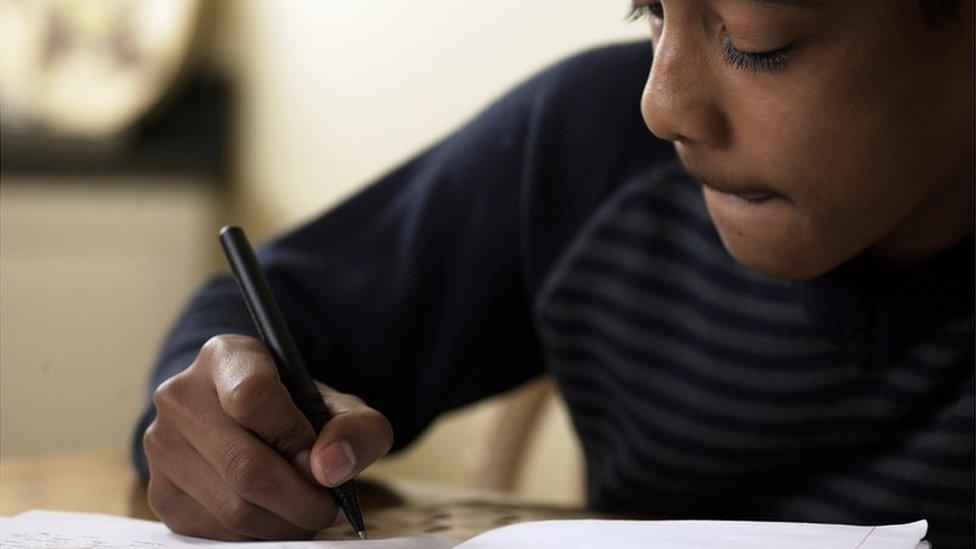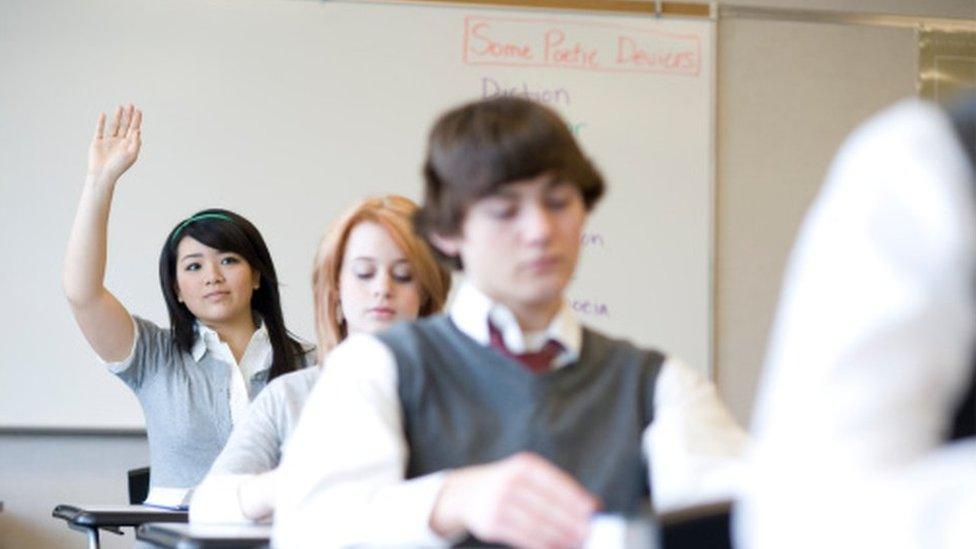'Waste of talent' as poor pupils lag behind richer peers
- Published

Clever pupils from poorer homes in the UK are lagging behind their as able but better-off peers in maths, science and reading, analysis finds.
The Sutton Trust research finds the attainment gaps within the most able 10% of pupils are even bigger for girls than they are for boys.
The trust said it was a "huge waste of talent" that less advantaged young people were falling behind.
The government said its pupil premium was tackling educational inequality.
The Sutton Trust analysis examined the 2015 results from international Pisa tests to look at the performance of the 10% of most able pupils in England, Scotland, Wales and Northern Ireland and their socio-economic background.
It found that the gap between the brightest rich and poor children in England is approximately two years and eight to nine months in reading, maths and science.
Among able girls, the gulf for reading is three years - nine months more than it is for boys.
In science it is also three years - eight months more than the equivalent gap for boys.
There is no significant gender difference in maths, the research says.
In Scotland, bright disadvantaged pupils are about two years and seven months behind their well-off classmates in science and maths, while in reading they are about two years and two months of schooling behind.
In Wales, the gulf between rich and poor clever children is just under two years in each of the three subjects, while in Northern Ireland it is about two years in reading, and just over this in science and maths.

The report concludes: "Developing the talents of able children from less fortunate backgrounds is crucial for social mobility - if we want more disadvantaged young people to enter the top professional jobs, then we need to make sure that they have the skills they need to succeed."
The report recommends:
the government set up a "highly able find" to support bright children in comprehensive schools
all schools be made accountable for the progress of the most able pupils, making sure they have access to triple science, a language and humanities
schools where highly capable pupils underperform should be supported by local schools where these pupils do excel, for example through extra-curricular activities
Sir Peter Lampl, founder and chairman of the Sutton Trust, said: "It is staggering that at age 16 bright but poor pupils lag behind their rich classmates by almost three years.
"This results in a huge waste of talent, which is why we at the Sutton Trust are calling on government to establish a 'highly able fund'.
"High potential pupils would be monitored and given specific support.
"This would improve social mobility at the top by widening access to leading universities and to top jobs."
A spokesman for the Department for Education said the government was spending £2.5bn this year through the pupil premium to tackle educational inequality in England.
"But we are determined to go further, and through our reformed, more rigorous curriculum, we want to stretch all pupils, including the most able," he said.
"We have also recently consulted on proposals to end the ban on new grammar schools, where we know bright children from disadvantaged backgrounds thrive, as well as harnessing the resources and expertise of universities, independent and faith schools to create even more good school places."
Sarah Stevens, head of policy for the Russell Group of universities, said closing the attainment gap was a "huge challenge".
"Universities can and do play an important role here - our members are working with more than 2,000 schools across the country and investing in grant and bursary support to give more young people the chance to benefit from higher education.
"However, action across many areas is required to have a demonstrable effect on attainment.
"This includes things like school funding and early years interventions that ministers will need to look at closely."
- Published26 January 2017
